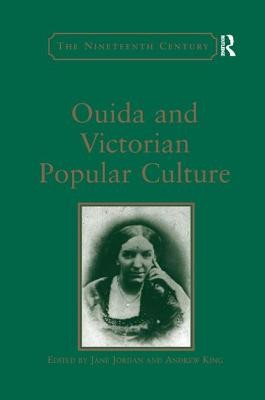
- We will send in 10–14 business days.
- Author: Andrew King
- Publisher: Routledge
- ISBN-10: 1138268240
- ISBN-13: 9781138268241
- Format: 15.6 x 23.4 x 1.4 cm, minkšti viršeliai
- Language: English
- SAVE -10% with code: EXTRA
Reviews
Description
'Ouida, ' the pseudonym of Louise Ramé (1839-1908), was one of the most productive, widely-circulated and adapted of Victorian popular novelists, with a readership that ranged from Vernon Lee, Oscar Wilde and Ruskin to the nameless newspaper readers and subscribers to lending libraries. Examining the range and variety of Ouida's literary output, which includes journalism as well as fiction, reveals her to be both a literary seismometer, sensitive to the enormous shifts in taste and publication practices of the second half of the nineteenth century, and a fierce protector of her independent vision. This collection offers a radically new view of Ouida, helping us thereby to rethink our perceptions of popular women writers in general, theatrical adaptation of their fiction, and their engagements with imperialism, nationalism and cosmopolitanism. The volume's usefulness to scholars is enhanced by new bibliographies of Ouida's fiction and journalism as well as of British stage adaptations of her work.
EXTRA 10 % discount with code: EXTRA
The promotion ends in 23d.00:25:51
The discount code is valid when purchasing from 10 €. Discounts do not stack.
- Author: Andrew King
- Publisher: Routledge
- ISBN-10: 1138268240
- ISBN-13: 9781138268241
- Format: 15.6 x 23.4 x 1.4 cm, minkšti viršeliai
- Language: English English
'Ouida, ' the pseudonym of Louise Ramé (1839-1908), was one of the most productive, widely-circulated and adapted of Victorian popular novelists, with a readership that ranged from Vernon Lee, Oscar Wilde and Ruskin to the nameless newspaper readers and subscribers to lending libraries. Examining the range and variety of Ouida's literary output, which includes journalism as well as fiction, reveals her to be both a literary seismometer, sensitive to the enormous shifts in taste and publication practices of the second half of the nineteenth century, and a fierce protector of her independent vision. This collection offers a radically new view of Ouida, helping us thereby to rethink our perceptions of popular women writers in general, theatrical adaptation of their fiction, and their engagements with imperialism, nationalism and cosmopolitanism. The volume's usefulness to scholars is enhanced by new bibliographies of Ouida's fiction and journalism as well as of British stage adaptations of her work.


Reviews